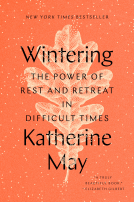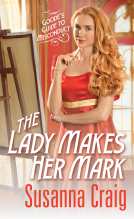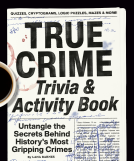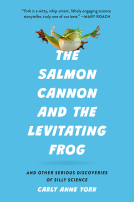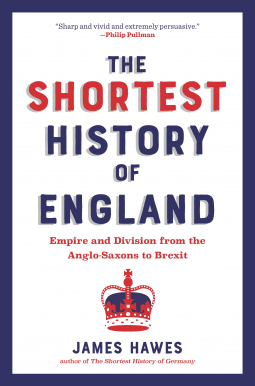
The Shortest History of England
Empire and Division from the Anglo-Saxons to Brexit—A Retelling for Our Times
by James Hawes
This title was previously available on NetGalley and is now archived.
Send NetGalley books directly to your Kindle or Kindle app
1
To read on a Kindle or Kindle app, please add kindle@netgalley.com as an approved email address to receive files in your Amazon account. Click here for step-by-step instructions.
2
Also find your Kindle email address within your Amazon account, and enter it here.
Pub Date Mar 15 2022 | Archive Date Apr 26 2022
Talking about this book? Use #TheShortestHistoryofEngland #NetGalley. More hashtag tips!
Description
This file is NOT currently available for Kindle. We apologize for any inconvenience. If you have difficulties with downloading, please email us (at publicity@theexperimentpublishing.com) for assistance or leave a note in lieu of a review rating.
The newest in The Shortest History Series brings you a fast-paced tour of 2,000 years of English history, tracing its secret north–south divide and notorious class system
James Hawes reveals an England repeatedly invaded and constantly reinvented, yet always fractured by its very own Mason–Dixon line—plus a unique, thousand-year-old cultural divide between ordinary people and the elites. Here, you’ll see: centuries of conflict between Crown and Parliament, starring the Magna Cartawhy the American colonists of 1776 believed that they were the true Anglo-Saxonshow the British Empire was undermined from withinwhy Winston Churchill said the UK could only be saved by splitting up England itselfThe Shortest History of England brings all this and more to prescient life with 150 maps and pictures.
Advance Praise
Acclaim from the UK
“James Hawes’s view of English history is sharp and vivid and extremely persuasive.”—Philip Pullman, author of the His Dark Materials trilogy
“No one writes history as well as James Hawes or uses the past to make sense of the present so skillfully. This is an urgent and electrifying work that takes you to the heart of England’s sickness. Do yourself a favor and read it.”—Nick Cohen, journalist for The Observer
“A thorough and absorbing investigation of the English story . . . Perhaps [Hawes’s] greatest skill is in how he brings the story right up to date, able to step back from the current madness with admirable clarity to separate wood and trees in a way most of us would find impossible.”—The New European
“Brilliant insights on every page, and the multiple entry points and clever use of graphics bestows an easy-to-read, magazine-y feel. Favorite thing I learnt: the Anglo-Saxon warrior elite departed en masse about 1076 to fight for the Byzantine Empire, and founded a New England in the Crimea. And yes, I read it in a day.”—Book Brunch
Available Editions
| EDITION | Other Format |
| ISBN | 9781615198146 |
| PRICE | $15.95 (USD) |
| PAGES | 304 |
Featured Reviews
There’s a lot of ground to cover and James Hawes does it reasonably well. I liked the graphics and the maps; certainly the maps were very useful. I thought that the text was somewhat opinionated, especially as I reached the current time period. I would have preferred more objectivity. While the writing style is conversational, I did not find it as pleasing as the writing in “The Shortest History of China”. Overall, though, it was a worthwhile read. Thank you to Netgalley and The Experiment for the advance reader copy.
 Michael L, Reviewer
Michael L, Reviewer
The title, "The Shortest History of England," perfectly describes what this book delivers. It is a short, crisp history of an incredibly complicated country. Hawes' writing is crisp but delivers a good deal of information. Some of the history told will ring familiar if you're a fan of "Monty Python and the Holy Grail," believe it or not. There were elements that seemed short-changed, like World War I and II, as well as current history which have had significant global impact (nary a mention of Teresa May, as an example). Still, this was an informative, enjoyable. read. Thanks to NetGalley and the Experiment for the opportunity to read this advance copy. #NetGalley #TheShortestHistoryofEngland
Great overview for Anglophiles. I liked that Hawes framed events within one focus- south versus north, south versus everywhere else. This idea was new to me and the perspective helped me to understand history and current events a bit better.
 Meagan B, Librarian
Meagan B, Librarian
Hawes really packed a lot of material into a neat little package. I found the pacing to be excellent, never lingering too long or drawing out a topic. It kept the extensive history of England flowing quickly and easily. It was very interesting and I think our Anglophile patrons will devour it.
 Christy S, Librarian
Christy S, Librarian
Very much enjoyed the format of this title and the compact way it shared history over multiple centuries. It was readable and not overwhelming, but I also felt like I learned quite a bit.
Definitely curious about the other title by this author now, which always feels like a sign of a good book to me!
I love a good history book and this was one. It was concise and informative, This is great for people who want to learn about something but can not read a 1000 page book. Genius Idea.
 Jenny C, Librarian
Jenny C, Librarian
I have a bias against reading history books because they are usually overly detailed and long. I had to marvel at Hawes' ability to communicate a significant amount of information in a succinct way while still relying on artifacts and primary sources, and enough visuals and textual variances to keep the mind from wandering.
Readers who liked this book also liked:
Nigel Henbest; Simon Brew; Sarah Tomley; Ken Okona-Mensah; Tom Parfitt; Trevor Davies; Chas Newkey-Burden
Entertainment & Pop Culture, Humor & Satire, Nonfiction (Adult)
